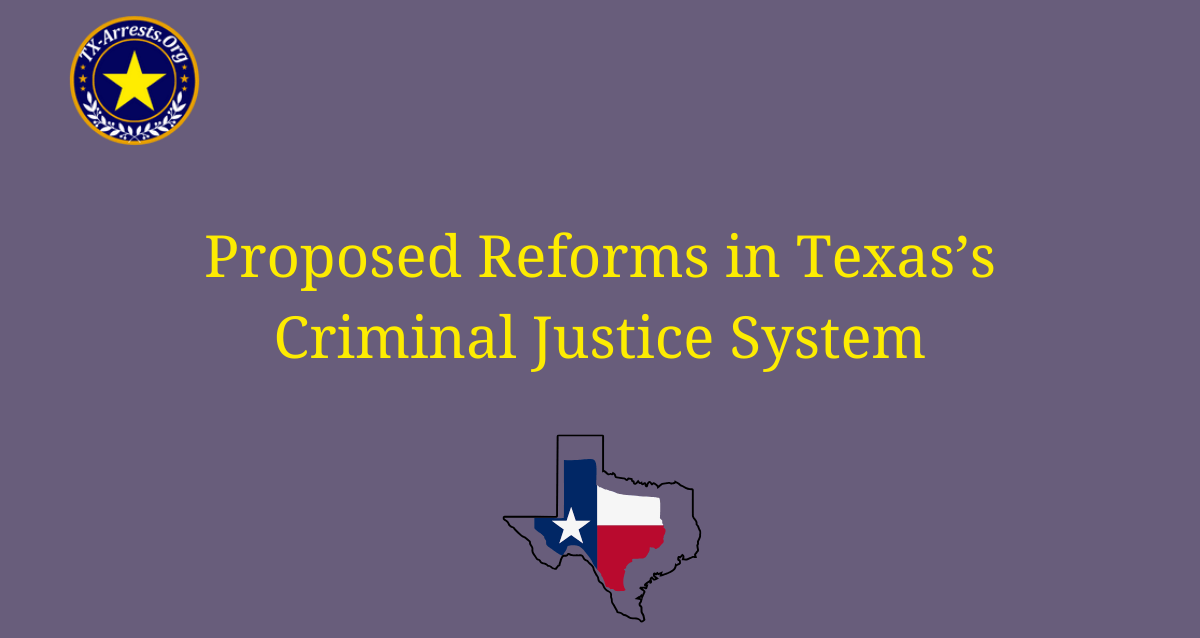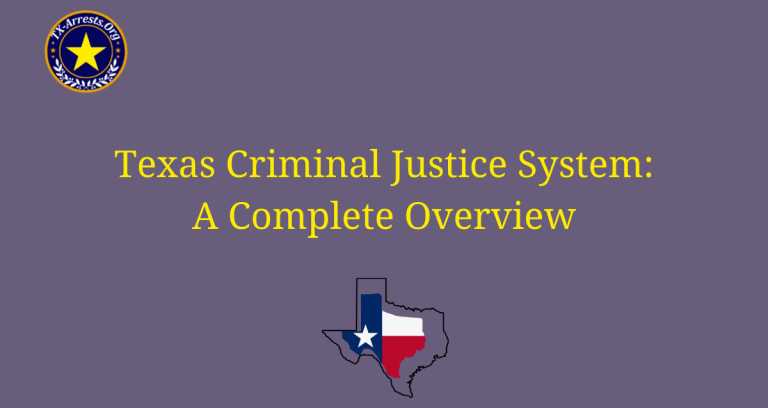Proposed Reforms in Texas’s Criminal Justice System

The criminal justice system in Texas is in need of significant reforms in order to address the issues and challenges it currently faces. With a high incarceration rate and disproportionate impact on marginalized communities, it is imperative that changes be made to ensure fairness, rehabilitation, and a more effective system overall.
One key area that requires attention is sentencing reform. The current system often imposes harsh penalties for non-violent offenses, leading to overcrowded prisons and a cycle of recidivism. By implementing alternative sentencing options, such as community service or rehabilitation programs, individuals can have a chance to reform and reintegrate into society, reducing the burden on the prison system and promoting a more just approach to justice.
Sentencing Reform: Mitigating Non-Violent Penalties
One of the key areas that requires attention in the criminal justice system in Texas is sentencing reform. The current system often imposes harsh penalties for non-violent offenses, which has led to overcrowded prisons and a cycle of recidivism. By implementing alternative sentencing options, such as community service or rehabilitation programs, individuals can have a chance to reform and reintegrate into society, reducing the burden on the prison system and promoting a more just approach to justice.
The Impact of Harsh Penalties
The imposition of harsh penalties for non-violent offenses has created numerous issues within the criminal justice system in Texas. These penalties contribute to overcrowding in prisons, as individuals are sentenced to long terms for relatively minor offenses. This overcrowding puts a strain on resources and makes it difficult for the system to effectively rehabilitate individuals or provide appropriate support.
Breaking the Cycle of Recidivism
Harsh penalties for non-violent offenses often perpetuate a cycle of recidivism. When individuals are sentenced to long prison terms without addressing the underlying issues that led to their criminal behavior, they are more likely to reoffend upon release. By implementing alternative sentencing options, such as rehabilitation programs, individuals can receive the support and resources they need to break this cycle and reintegrate into society as productive members.
Providing Opportunities for Reform
Alternative sentencing options, such as community service or rehabilitation programs, provide individuals with the opportunity for reform. These options allow individuals to address the root causes of their criminal behavior, develop new skills, and gain a sense of purpose and responsibility. By focusing on rehabilitation rather than punishment, the criminal justice system can better support individuals in their journey towards positive change.
Reducing the Burden on the Prison System
The implementation of alternative sentencing options can also help reduce the burden on the prison system. By diverting non-violent offenders away from incarceration and towards community-based programs, the number of individuals in prisons can be reduced. This alleviates overcrowding, allows resources to be more effectively allocated, and enables the system to focus on individuals who pose a genuine threat to public safety.
A More Just Approach to Justice
Ultimately, sentencing reform is crucial for promoting a more just approach to justice in Texas. By addressing the issues and challenges associated with harsh penalties for non-violent offenses, the system can ensure fairness for all individuals, regardless of their background or circumstances. By providing opportunities for rehabilitation and reintegration, the system can strive towards a more effective and equitable approach to criminal justice.
FAQs
What are the proposed reforms in Texas’s Criminal Justice System?
The proposed reforms in Texas’s Criminal Justice System aim to address various issues and improve the overall functioning of the system. Some of the key proposed reforms include:
How will these reforms impact the criminal justice system in Texas?
These reforms are expected to have a significant impact on the criminal justice system in Texas. They aim to reduce overcrowding in prisons, improve the efficiency of the system, and promote fairness and equality in the administration of justice.
What are the main goals of these proposed reforms?
The main goals of these proposed reforms are to reduce recidivism rates, prioritize rehabilitation over punishment, ensure equal treatment for all individuals regardless of their background, and enhance public safety.
Will these reforms affect sentencing and punishment for criminal offenses?
Yes, these reforms may lead to changes in sentencing and punishment for criminal offenses. The focus will shift towards alternative sentencing options, such as community service, probation, and rehabilitation programs, rather than solely relying on incarceration.
How will these reforms address racial disparities in the criminal justice system?
One of the key aspects of these proposed reforms is to address racial disparities in the criminal justice system. Efforts will be made to ensure fair and impartial treatment for individuals from all racial and ethnic backgrounds, and to eliminate any biases or prejudices that may exist within the system.
What steps are being taken to implement these proposed reforms?
To implement these proposed reforms, various stakeholders, including lawmakers, criminal justice professionals, community leaders, and advocacy groups, are working together to develop and pass legislation, allocate resources, and raise awareness about the need for change.






